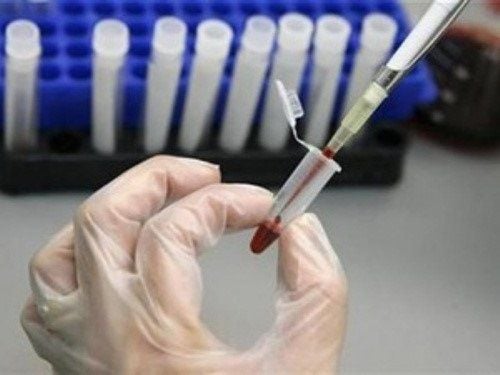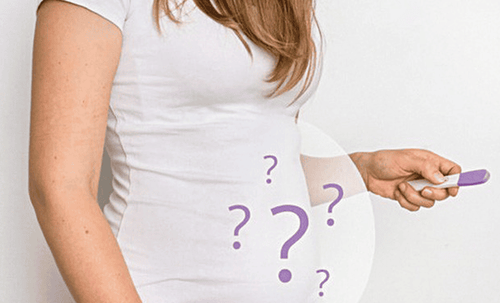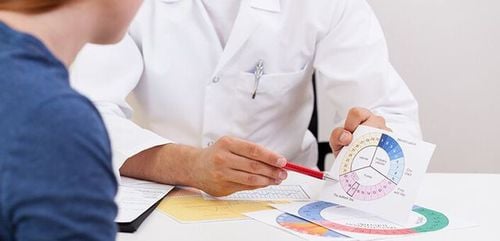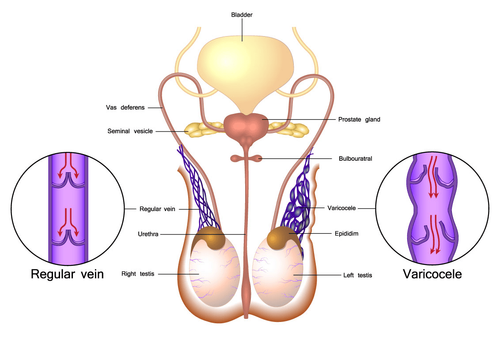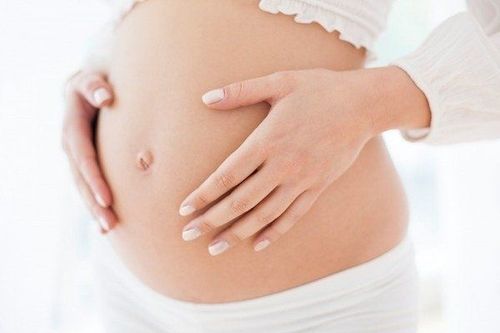This is an automatically translated article.
Your chance of conceiving one cycle in your 20s is about 45% (based on average annual pregnancy rates per cycle). Most women in their 20s conceive within a year of regular sex. As long as you're in good health, your chance of conceiving within two years is about 98% in your early 20s, dropping slightly to about 95% in your late 20s. You're very unlikely to be infertile. unexplained infertility in your 20s. Unexplained infertility is when your doctor can't figure out why you're not conceiving. But for women over 35, most infertility is unexplained. This has a lot to do with the decline in egg quality with your age. In this article, we will provide useful information to clarify your age and fertility when you are pregnant in your 20s.
1. Benefits of getting pregnant at 20.
If you're trying to get pregnant in your 20s, your body is already getting pregnant, and it may take a while if you decide to wait to start your family. Pregnancy at any age has its pros and cons. We consulted with fertility experts, financial advisors, relationship experts, and 20-year-old moms to get a realistic picture of what it's like to have a baby in your 20s. Pregnancy at any age means countless changes in the body as well as in life, and the changes vary from woman to woman.
From a biological point of view, the 20s is the ideal age to get pregnant, as this is the time when a woman's fertility is at its peak. Their bodies are healthier in that organs such as the uterus, eggs, and body systems are operating at optimal capacity. A woman gives birth to the number of eggs she will have: about 1 to 2 million eggs. By puberty, the number of eggs is about 300,000 to 500,000, but the ovaries will only release about 300 eggs during the reproductive years.
As your age increases, your ovaries age along with the rest of your body and the quality of your eggs gradually declines. That's why younger women's eggs are less likely to be linked to some of the genetic disorders that cause Down syndrome and other birth defects than older women.

Độ tuổi 20 là độ tuổi lý tưởng để mang thai
At the age of 20, the uterus is active and the number of eggs is produced a lot. So women of this age have a higher chance of getting pregnant as soon as they start trying. Having sex a few days before ovulation gives them a 33% chance of getting pregnant. That means, with each menstrual cycle, depending on the exact test method, the chances of getting pregnant will be higher than any age.
The risk of miscarriage is also much lower: About 10% for women in their 20s, 12% for women in their early 30s, and 18% for women in their mid to late 30s. The risk of miscarriage increases to about 34% for women in their early 40s and 53% by age 45.
The time when you are young, the body can recover health and fitness faster. The organ systems in the body work well, so self-healing also happens faster. As for older women, aging comes with many problems, the body's recovery after giving birth will also be slower, the sequelae left after childbirth will also be more. Pregnancy is often easier for women in their 20s because there is less risk of health complications like high blood pressure and diabetes. You're also less likely to have gynecological conditions, like uterine fibroids, which often become more difficult over time. Finally, younger women are less likely to give birth prematurely or with low birth weight than women over 35.
A resilient body also adapts more easily to the day-to-day development of children, as well as easily overcomes the stress and fatigue of motherhood.
2. Drawbacks of getting pregnant at 20
For young people, the 20s are the best years for a person to discover his potential and develop it, both professionally and personally. These are the years where you can chart a great career path.
While there are women who balance the two well, there are many jobs that are quite challenging and require a woman to prioritize her goals. This means pregnancy can force them to put their careers on hold and take care of their families.

Phụ nữ mang thai có thể phải dừng sự nghiệp và tập trung lo cho gia đình
There are also financial aspects to having a new baby in your life. According to Leah Seidler, a psychotherapist based in San Francisco who specializes in relationship problems, having a baby can also make a marriage difficult for a young couple. Seidler observes: “Young people often don't have the life experience to realize that the first period of life with a new baby is only temporary. "The young mother may feel depressed and overwhelmed, the father may feel abandoned by his wife, the husband is no longer the number one concern for the wife. Ideally, a couple. Husbands and wives will support each other to adjust to this change and feel more connected, but many couples grow further apart, which can seriously damage a marriage."
"Even many couples in their 20s aren't ready to be parents," Seidler says. Parenting takes a toll on the mind and body, and many parents – especially young ones – are not fully prepared for that sacrifice and patience.
It is also important to mention the issue of disagreement that can arise when a couple assumes the responsibility of parenthood at a young age and without much experience. Also, not many women have the emotional maturity to be a mother at such a young age.
3. What to do if you want to get pregnant right in your 20s
For your chance to have a normal pregnancy and a healthy baby, consider taking some important steps before trying to conceive. Read these tips to help you prepare for pregnancy.
If you don't get pregnant right away, just keep trying for now. Specialists will advise you to wait until you have had regular sex (about two or three times a week) for a year without getting pregnant before you should see an obstetrician and gynecologist for a checkup.
Those who want to get pregnant during this period should first prepare physically and mentally. Start by living healthy and active. Exercise regularly, reduce excess fat and try to bring your weight back to the right BMI. A diet that includes a lot of vegetables and fruits and also do not forget to increase the intake of lean meat. Do not drink alcohol and smoke. Drink more water. Try to be cheerful, happy and avoid any stressful problems.
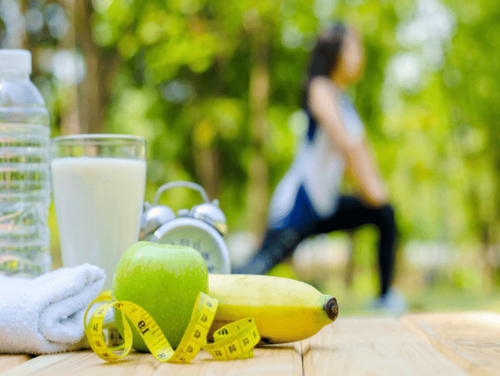
Nên chuẩn bị về thể chất và tinh thần thật tốt nếu muốn mang thai ở độ tuổi 20
Try natural conception for at least three menstrual cycles. You can use an ovulation test kit, an ovulation ultrasound, or other methods like tracking your cervical mucus and basal body temperature to find out exactly when you ovulate. Have sex on these days to maximize your chances of getting pregnant.
Even after trying, if you can't get pregnant, you should consult an obstetrician-gynecologist. They will learn your menstrual cycle, and give you useful advice.
4. How to avoid pregnancy in your 20s.
If you don't want to get pregnant in your 20s, there are many birth control methods you can try. You can freeze eggs in your 20s so you can use them later when you're ready to become a mother. This is a good option for women who want to wait until their 30s to get pregnant and achieve more emotional, financial, and psychological maturity.
Better talk to your lover or husband about contraception during this period and do not forget to consult the doctor's advice to get the best choice.
Pre-pregnancy health care not only needs genetic screening, nutritional supplements, but also disease prevention to ensure health during pregnancy. Therefore, Vinmec's pre-pregnancy health care and counseling program was born, which is the perfect and complete solution for couples who are preparing for pregnancy to welcome a baby.
Pre-pregnancy health care and counseling program at Vinmec International General Hospital includes the following main contents:
Pre-pregnancy genetic counseling Screening to detect healthy people carrying disease genes Standard equipment for assisted reproductive services Pharmaceutical use and pregnancy Vaccinations Oral Vitamins and Folic Acid (vitamin B9) Food use and pregnancy Prevention of exposure to toxic chemicals, hazardous physical agents Other health problems for you and your husband (wife) At Vinmec International General Hospital, the doctor will examine, guide as well as support the most complete information for couples before marriage. prepare to have children.
Please dial HOTLINE for more information or register for an appointment HERE. Download MyVinmec app to make appointments faster and to manage your bookings easily.
Reference sources: parenting.firstcry.com, babycenter.com





